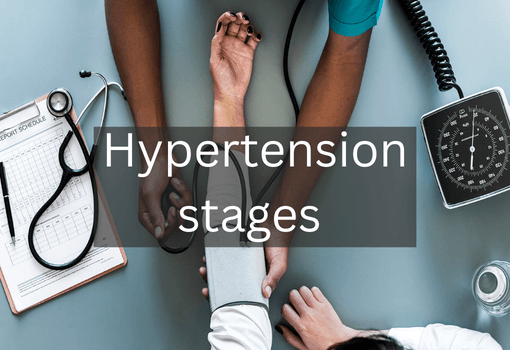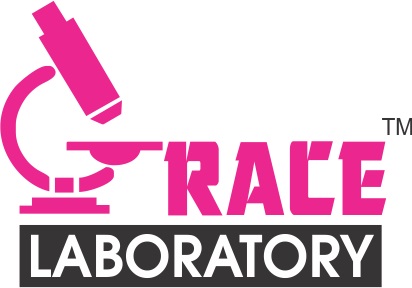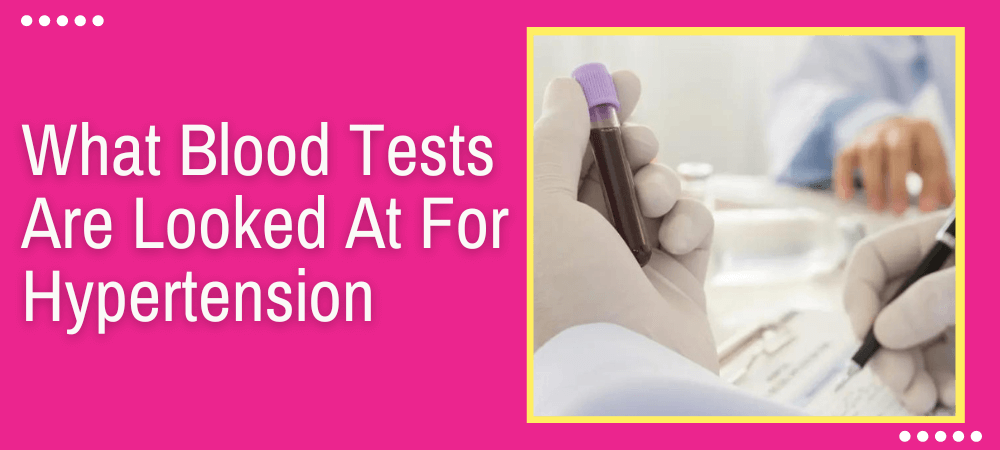Hypertension is a significant reason behind premature deaths around the world. Also known as high blood pressure, it is a common condition that millions of people suffer from today.
According to WHO, approximately 46% of adults with hypertension are unaware of their condition, and only 42% of adults with hypertension receive a diagnosis and appropriate treatment.
Various blood tests are used to identify hypertension and monitor its progression. This article will discuss the blood tests used to diagnose hypertension and how they are interpreted.
How does hypertension occur?
Hypertension usually develops over time. Unhealthy lifestyle choices, including smoking, overdrinking, insufficient regular physical activity and a high salt diet, can lead to its occurrence.
Medical conditions like diabetes and obesity also increase the risk of developing hypertension.
The optimal blood pressure range is between 90/60 mm Hg and 120/80 mm Hg. If your blood pressure is too high, around 140/90 mm Hg or more, this is known as hypertension.
Hypertension stages

Here are the hypertension lab values indicating different blood pressure stages:
| Blood pressure classification | Systolic BP values | Diastolic BP values |
| Normal | below 120 mm HG | below 80 mm HG |
| Elevated (Prehypertension) | 120-129 mm HG | below 80 mm HG |
| Stage 1 Hypertension | 130–139 mm Hg | 80–89 mm Hg |
| Stage 2 Hypertension | 140 mm HG or higher | 90mm Hg or higher |
Hypotension is another possibility. It is often known as low blood pressure. It is seen as an issue if the systolic or diastolic blood pressure is less than 90 or 60 mm Hg.
Dehydration can cause hypotension, leading to weariness, fainting, and dizziness. First-trimester fainting in a pregnant woman can be caused by low blood pressure, which a doctor should investigate.
Individuals can have blood pressure levels that are naturally higher or lower than others. Therefore screening is very crucial, especially for pregnant women.
However, people with hypertension usually do not feel any symptoms. The only way to diagnose hypertension is to get your blood pressure checked.
If not treated, high blood pressure can lead to severe health problems such as stroke, heart attack, kidney failure, eye damage, and complications during pregnancy.
What labs are done for hypertension?
The standard lab blood tests for hypertension include the following:
- Complete blood count (CBC): The CBC test measures the number of blood cells, hemoglobin and platelets in the blood. It can help identify other underlying conditions like anemia or infections contributing to hypertension.
- Lipid profile test: The lipid panel measures blood cholesterol, triglycerides and other lipids. Heart disease, frequently linked to hypertension, is risky when triglyceride and cholesterol levels are high.
- Urine Test: In this test, a urine sample is examined for the presence of proteins, glucose, or other compounds that could be an indication of renal disease or other diseases that may contribute to or cause high blood pressure.
- Electrocardiogram (ECG/EKG): ECG is a non-invasive test that measures the heart’s electrical activity. It evaluates heart muscle damage like a heart attack or thickening of the heart wall – common complications of hypertension.
Conclusion
In conclusion, there is no specific test to diagnose hypertension. However, certain laboratory blood tests can detect underlying conditions like anemia, high cholesterol, etc., increasing hypertension risk.
Further, though anyone can test their blood pressure using automated devices, a professional assessment is necessary to determine risk and associated conditions.
FAQs
1. Does hypertension show up in blood tests?
Yes. But blood tests alone do not diagnose hypertension; they check for underlying conditions contributing to high blood pressure, such as diabetes, kidney disease etc.
2. Is fasting necessary before taking a blood test to check for hypertension?
Whether fasting is necessary before a hypertension blood test depends on the type of blood test. If fasting is required, your healthcare provider will let you know in advance.
3. What is essential hypertension?
Also known as primary hypertension, essential hypertension is a type with no cause identified. It is the most common type of high blood pressure and is usually caused by lifestyle factors.

